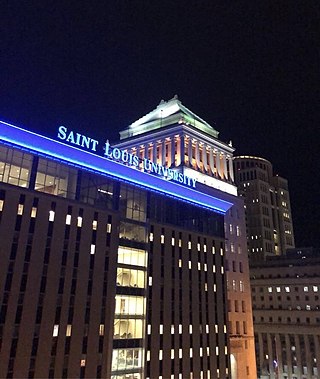Arbitration, in the context of the law of the United States, is a form of alternative dispute resolution. Specifically, arbitration is an alternative to litigation through which the parties to a dispute agree to submit their respective evidence and legal arguments to a neutral third party for resolution. In practice arbitration is generally used as a substitute for litigation, particularly when the judicial process is perceived as too slow, expensive or biased. In some contexts, an arbitrator may be described as an umpire.
Dispute resolution or dispute settlement is the process of resolving disputes between parties. The term dispute resolution is sometimes used interchangeably with conflict resolution.
An amicus curiae is an individual or organization who is not a party to a legal case, but who is permitted to assist a court by offering information, expertise, or insight that has a bearing on the issues in the case. The decision on whether to consider an amicus brief lies within the discretion of the court. The phrase is legal Latin and the origin of the term has been dated to 1605–1615. The scope of amici curiae is generally found in the cases where broad public interests are involved and concerns regarding civil rights are in question.

The Georgetown University Law Center is the law school of Georgetown University, a private research university in Washington, D.C. It was established in 1870 and is the largest law school in the United States by enrollment and the most applied to, receiving more full-time applications than any other law school in the country.

The University of Virginia School of Law is the law school of the University of Virginia, a public research university in Charlottesville, Virginia. It was founded in 1819 by Thomas Jefferson as part of his "academical village" – which became the University of Virginia – where law was one of the original disciplines taught. UVA Law is the fourth-oldest active law school in the United States and the second-oldest continuously operating law school. The law school offers the J.D., LL.M., and S.J.D. degrees in law and hosts visiting scholars, visiting researchers and a number of legal research centers.

Mahmoud Cherif Bassiouni was an Egyptian-American emeritus professor of law at DePaul University, where he taught from 1964 to 2012. He served in numerous United Nations positions and served as the consultant to the US Department of State and Justice on many projects. He was a founding member of the International Human Rights Law Institute at DePaul University which was established in 1990. He served as president from 1990 to 1997 and then as president emeritus. Bassiouni is often referred to by the media as "the Godfather of International Criminal Law" and a "war crimes expert". As such, he served on the Steering Committee for The Crimes Against Humanity Initiative, which was launched to study the need for a comprehensive convention on the prevention and punishment of crimes against humanity, and draft a proposed treaty. He spearheaded the drafting of the proposed convention, which as of 2014 is being debated at the International Law Commission.

Patrick Errol Higginbotham is an American judge and lawyer who serves as a Senior United States circuit judge of the United States Court of Appeals for the Fifth Circuit.
Chicago-Kent College of Law is the law school of the Illinois Institute of Technology, a private research university in Chicago, Illinois. It is the second oldest law school in the state of Illinois. In 2023, Chicago-Kent was ranked 94th among U.S. law schools by U.S. News & World Report and its trial advocacy program is ranked as the 7th best program in the United States.
Becket Law, formerly the Becket Fund for Religious Liberty, is a non-profit public interest law firm based in Washington, D.C., that describes its mission as "defending the freedom of religion of people of all faiths". Becket promotes accommodationism and is active in the judicial system, the media, and in education.

Donny Ray Willett is a United States circuit judge of the United States Court of Appeals for the Fifth Circuit. He was previously appointed by Texas Governor Rick Perry to serve as a justice of the Supreme Court of Texas on August 24, 2005, when former Justice Priscilla Owen created a vacancy on that court by joining the Fifth Circuit.
The University of Texas School of Law is the law school of the University of Texas at Austin. Texas Law is consistently ranked as one of the top law schools in the United States and is highly selective—registering the 8th lowest acceptance rate among all U.S. law schools for the class of 2022—with an acceptance rate of 17.5%. According to Texas Law’s 2019 disclosures, 90 percent of the Class of 2019 obtained full-time, long-term bar passage required/JD advantage employment nine months after graduation.

Saint Louis University School of Law, also known as SLU LAW, is a private American law school located in St. Louis, Missouri. It is one of the professional graduate schools of Saint Louis University. The University hosted a law school briefly from 1843 to 1847, making it the first law school to open west of the Mississippi River and first Catholic law school in the United States. The current law school was established in 1908 with its current name. The school has been ABA approved since 1924 and is a member of the Association of American Law Schools. Housed in Scott Hall, the law school has the highest enrollment of law students in Missouri. SLU Law has the highest bar passage rate in the state of Missouri. It offers both full- and part-time programs. The school is home to the University's Vincent C. Immel Law Library, one of the largest law libraries in the state of Missouri. Supreme Court Justice Clarence Thomas studied for his bar exam at the old Omer Poos Law Library on the main SLU campus.
Kristine Huskey is an American lawyer. Huskey is notable because she volunteered to help defend Guantanamo detainees. Huskey is the author of "Standards and Procedures for Classifying "Enemy Combatants": Congress, What Have You Done?"
Michael Edward Tigar is an American criminal defense attorney known for representing controversial clients, a human rights activist and a scholar and law teacher. Tigar is an emeritus (retired) member of the Duke Law School and American University, Washington College of Law faculties. He was on the faculty of the University of Texas School of Law from 1983-1998, serving as the Joseph D. Jamail Centennial Chair in Law for much of that time.
McKool Smith is a U.S. trial firm with more than 130 trial lawyers across seven offices in Austin, Dallas, Houston, Los Angeles, Marshall, New York City, and Washington, DC. The firm represents clients in disputes involving complex commercial litigation, intellectual property (IP), bankruptcy, and white collar defense matters.
Leal Garcia v. Texas, 564 U.S. 940 (2011), was a ruling in which the Supreme Court of the United States denied Humberto Leal García's application for stay of execution and application for writ of habeas corpus. Leal was subsequently executed by lethal injection. The central issue was not Leal's guilt, but rather that he was not notified of his right to call his consulate as required by international law. The Court did not stay the execution because Congress had never enacted legislation regarding this provision of international law. The ruling attracted a great deal of commentary and Leal's case was supported by attorneys specializing in international law and several former United States diplomats.
Stephen Daily Susman was an American commercial plaintiffs attorney and founding and name partner of Susman Godfrey LLP. He won more than $2 billion in damages and settlements in just three cases, including a $1.1 billion settlement on behalf of Texas Instruments in Samsung Electronics v. Texas Instruments, and a $536 million jury verdict in El Paso Natural Gas Co. v. GHR Energy Corp.

Andrew Stephen Oldham is a United States circuit judge of the United States Court of Appeals for the Fifth Circuit and former General Counsel to Texas Governor Greg Abbott.

Climate change litigation, also known as climate litigation, is an emerging body of environmental law using legal practice to set case law precedent to further climate change mitigation efforts from public institutions, such as governments and companies. In the face of slow politics of climate change delaying climate change mitigation, activists and lawyers have increased efforts to use national and international judiciary systems to advance the effort. Climate litigation typically engages in one of five types of legal claims: Constitutional law, administrative law, private law (challenging corporations or other organizations for negligence, nuisance, etc., fraud or consumer protection, or human rights.







